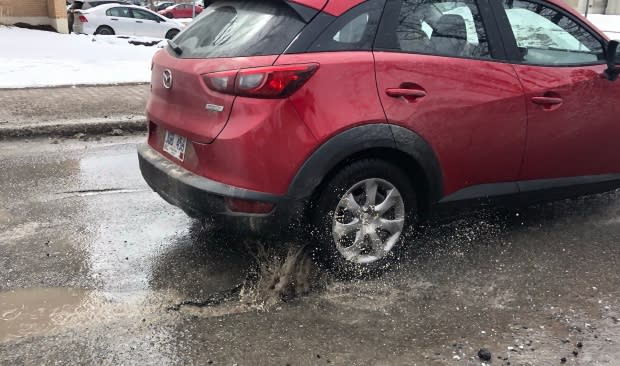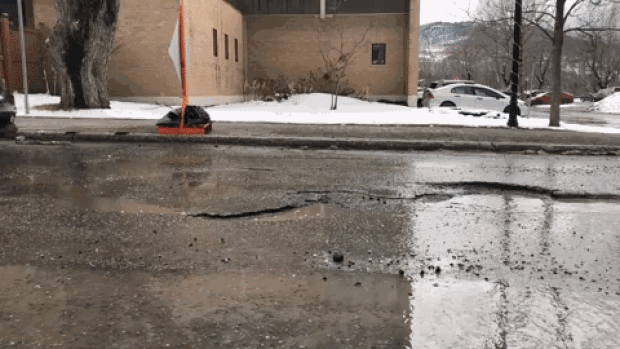Corner Brook is covered in craters as temperature changes crack the asphalt
The City of Corner Brook's director of public works, Donnie Burden, pulled over his truck and shook his head as he looked at the giant potholes on West Street.
"I know every year people say that this is the worst year yet, and since I've started with the city three years ago, this has been the worst I've seen for sure," said Donnie Burden.
Craters cover Broadway, West Street, and West Valley Road.
Freezing and thawing
"I think it's because of the weather we've had," he said.
"We've had a lot of freezing and thawing. We had that mild spell back in January again, which seemed to open up a lot of potholes. We've seen a lot of weather this spring that has gotten really cold at night but warming up during the day. So that's definitely not helping our pothole situation."

Burden said the potholes are bigger and there a lot more of them this year but the city does have a system in place to repair them, which starts with people calling the city to complain.
City crews then prioritize the repair list based on severity and location. It can take one or two days to fix a pothole with several maintenance crews working each day on the west coast city's streets.
Corner Brook has two ways to fill the nasty cavities:
Cold patch: if the weather isn't good, crews use a cold asphalt material and place it in the hole and compact it down. This is a temporary repair.
Hotbox: recycled asphalt is mixed and heated at the city depot. The heated asphalt goes in a hot box on the back of a truck and stays warm until it's time to fill the potholes.
Hotbox is best
Burden says the hotbox method is much more cost-effective and fills the holes permanently.
"The main thing is you can get better compaction with the hot asphalt than you do with the cold and the hot asphalt seems to bind a little better together."

"With the hot asphalt we're finding a lot better success and some of the patches we actually don't have to go back to at all."
The roads are old and degrade faster each year, said Burden, so there is no way to avoid potholes each spring.
"Unless you go in and excavate the entire road and replace the substrate and the asphalt, this is something we're going to have to live with every spring."
Burden said people should call the city whenever they see a new pothole, adding the roads should improve once the frost leaves the ground by mid-May.
Read more from CBC Newfoundland and Labrador

